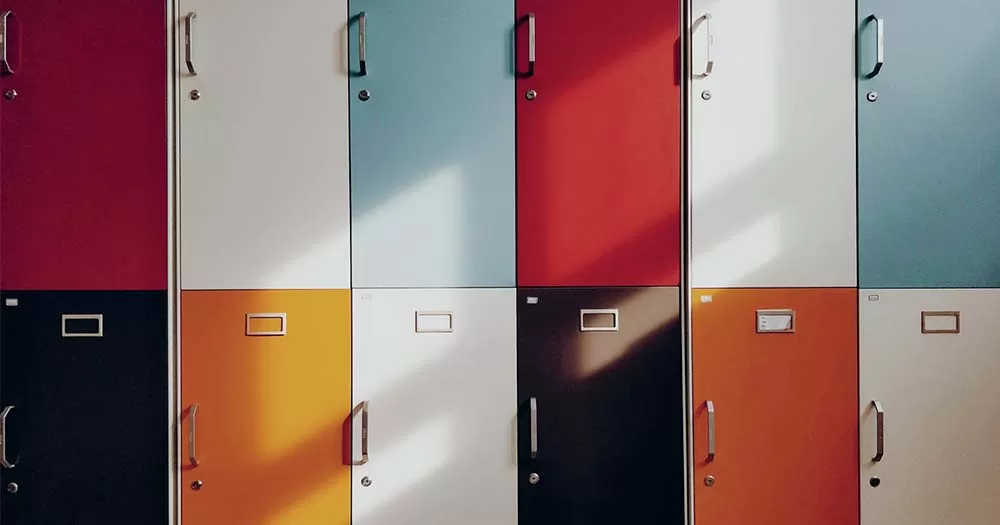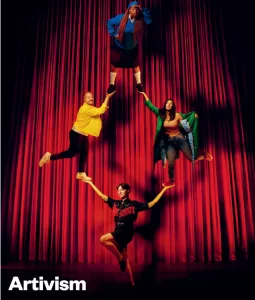What did it feel like to be an LGBTQ+ student in Ireland before homosexuality was decriminalised?
Until the Employment Equality Act was passed in 2015, teachers in Ireland could lose their jobs for being gay, as schools claimed that LGBTQ+ identities undermined their religious ethos. While we’ve made substantial progress in the past several years, in 2023 it was reported that roughly 80 percent of LGBTQ+ teachers remain closeted.
While being a gay teacher in state and Catholic school settings is challenging, it’s arguably even more difficult for LGBTQ+ students. For decades, Irish students were subjected to misinformation that explicitly taught them being queer is wrong.
Many of us are reckoning with the fact that our own experiences would have been markedly different if schools had not been homophobic.
Organisations like Belong To and ShoutOut are making a huge difference in educating and supporting students, teachers, and parents about LGBTQ+ identities, but because Catholic schools account for almost 90 percent of all primary schools in Ireland, inclusivity remains challenging.
I spoke with two adults about how their experiences as LGBTQ+ students in the 1970’s and 1990’s compare to today.
Laura (they/them) attended primary school in the 1990’s. Laura knew from an early age they were attracted to girls. “In sixth class, me and two other girls used to hide under jackets and kiss, until, one day, one of the girls said it was wrong and that we shouldn’t do it anymore.”
When Laura attended secondary school in the early 2000’s, they began to hear about LGBTQ+ identities for the first time, but always in a negative capacity. Being gay or lesbian “was just wrong”. They had a masculine presenting PE teacher, who was lovely, but Laura remembers other students calling the teacher a lesbian and refusing to change in front of her.
Laura secretly had a girlfriend, but classmates suspected they were both gay. In third year, a fellow student put a sticker on Laura’s back that said they were a lesbian – “there was lots of slagging and pointing until a teacher removed it”.
Later, a classmate asked to borrow their phone and went on to read messages between them and their girlfriend leading to them both being outed in a “disastrous” way. “When I was in biology class, I saw my girlfriend calling to me through the window of the door, so I asked to go to the bathroom. I felt the ground open up when she told me what had happened.”
A teacher tried to talk to them, but didn’t have the knowledge or language to help or offer support. Laura remembers a few classmates became more open and comfortable around them after this happened, and thinking, “Maybe if we had been allowed to be authentic individuals, our school could have been a happier place”.
View this post on Instagram
Tara (she/her) started school in the 1970’s. At the time, she didn’t know what it meant to be transgender, but she instinctively knew it felt wrong to be separated from her sisters and sent to the boys’ side of the school.
Her earliest school memories include getting in trouble for running away from her class to escape to the girls’ classroom. Eventually, the teachers agreed to let her stay, and she was happy there until someone complained. She was forced to go back to the boys’ school where she spent most of her school days being bullied and teased for being “girly”.
When Tara was five or six, she confided in a friend who she is still friends with today. “I’ve been given a girl’s brain,” she told her, but no one else seemed to understand. She was called a “sissy” by her classmates. “I learned that I had to bury my emotions and pretend to be someone I wasn’t,” which had a major negative impact on her early life.
In secondary school, Tara felt like she had a fresh start. She learned that there was less teasing when she taught herself to behave in a masculine way. She buried her identity even further, putting up a front so that no one would guess she was a girl. At this point, she had seen trans people being depicted as ‘deviant’ on television, which made her feel ashamed of who she was.
Tara remembers one openly gay student in her class who had a very difficult time because of bullying. There was no LGBTQ+ education in school, and a priest would come into the school and warn students about having inappropriate thoughts. These experiences negatively impacted her self-esteem and led her to having bad coping mechanisms in her formative years and for much of her early adulthood.
In recent years, concerted efforts have been made to make schools in Ireland more inclusive and open for students with LGBTQ+ identities.
The Being LGBT in School guide was updated in 2016 to include specific information about supporting transgender students, including ways to identify bullying, how to support students who want to leave a single-sex school environment, and good practices for teachers and guidance counsellors.
In 2019, the Cork Institute of Technology LGBT+ Society launched Ireland’s first instructional handbook on how to set up Gay/Straight Alliances and Gender and Sexuality Alliances in secondary schools. That same year, secondary schools in Ireland were encouraged to create safe spaces and support systems for LGBTQ+ students who were navigating mental health challenges.
View this post on Instagram
Today, Laura has a son attending school in Ireland, and the changes are obvious. For instance, Michael started school in 2015 and came home with a worksheet from senior infants describing “good touches and bad touches”.
It taught students that only parents and doctors were allowed to touch areas covered by bathing suits, and it encouraged parents to use correct terms for body parts. “This was amazing to me,” Laura said, “as I am a sexual abuse survivor and never had the language to know that what was happening to me was wrong.”
Their son goes to an Educate Together school where kids can wear their own clothes and express their individuality. Students call teachers by their first name, creating a sense of community and mutual respect.
“When I was at his parent teacher meeting,” Laura continued, “his teacher told me how Michael told them all that his mum has a girlfriend, and she was accepting in front of the class and told them ‘love is love’.
“Michael is going into sixth class now and he is very much an ally and LGBTQ+ advocate. He has worn a Pride t-shirt and socks to school and has had many healthy discussions with his classmates.” While some students say negative things about LGBTQ+ people, “the little allies are definitely not afraid to speak up for the community”.
Laura’s only complaint is that LGBTQ+ identities and relationships are omitted from sexual and relationships education materials, but that is set to change in the near future.
View this post on Instagram
For the first time, in September 2023, the Irish Leaving Cert began to include sex education classes for all second-level senior students, and the sex education module fully integrates LGBTQ+ identities, relationships and families into the curriculum.
The sexual activity curriculum will be taught in the context of care, respect, and consent. Pupils will learn about communicating feelings, respecting boundaries. It will also include topics about intimacy and mutual pleasure.
The new programme aims to build a society that is “inclusive of all genders, sexualities, ethnicities, religious beliefs/worldviews, social classes and abilities/disabilities”.
The new curriculum includes a more holistic understanding of gender, which is described as socially and culturally constructed roles, characteristics, and behaviours.
Gender identity is described as a person’s “felt internal and individual experience…which may or may not correspond with the sex registered at birth”. Students will also learn strategies for challenging harmful attitudes about the topic.
Ideally, all students should enjoy safe learning environments in school, but, despite these advances, there has been an increase in anti-LGBTQ+ legislation and violence worldwide. Young people, particularly young trans people, are bearing the weight of this.
View this post on Instagram
According to studies from the University of Galway and Belong To, 76% of LGBTQ+ students in Ireland feel unsafe at school, with over half encountering homophobic remarks from students or school staff.
Compared to the general youth population in Ireland, LGBTQ+ students are roughly nine times more likely to report being deliberately excluded by peers. Hopefully, by teaching students how to be supportive allies who can combat discrimination, these experiences will continue to become more rare over time.
Laura shared, “I’m hoping that when my son moves into secondary school we will see more inclusiveness. There is a secondary school down the road from us that is flying the progress flag and it’s wonderful to see whenever I’m driving past.”
It takes a concerted effort from teachers, parents and LGBTQ+ support organisations to make Irish schools a safe place for LGBTQ+ youth.
The night of their Debs, Laura remembers a girl planting “a full mouthed kiss on my lips,” but to this day, they have no idea who it was. They said, “I laughed it off then, but looking back now I’m thinking – ‘How many of us where there? With no representation and no community?’”
It’s hard to imagine how different our school experiences would have been if everyone was allowed to grow up as their full selves in the accepting and kind environments that we deserved.
Tara shared that she initially loved school and started off as class prefect, but in an attempt to fit in with the boys, she started skipping school, and by third year she left school completely. “The good news is, I’m going back to school in September, at age 52!
“I’ll finally get to be myself and focus on actual schooling instead of just trying to survive.”
This story originally appeared in GCN’s August 2023 issue 379. Read the full issue here.
© 2024 GCN (Gay Community News). All rights reserved.
This article was published in the print edition Issue No. 379 (August 1, 2023). Click here to read it now.
Support GCN
GCN is a free, vital resource for Ireland’s LGBTQ+ community since 1988.
GCN is a trading name of National LGBT Federation CLG, a registered charity - Charity Number: 20034580.
GCN relies on the generous support of the community and allies to sustain the crucial work that we do. Producing GCN is costly, and, in an industry which has been hugely impacted by rising costs, we need your support to help sustain and grow this vital resource.
Supporting GCN for as little as €1.99 per month will help us continue our work as Ireland’s free, independent LGBTQ+ media.

